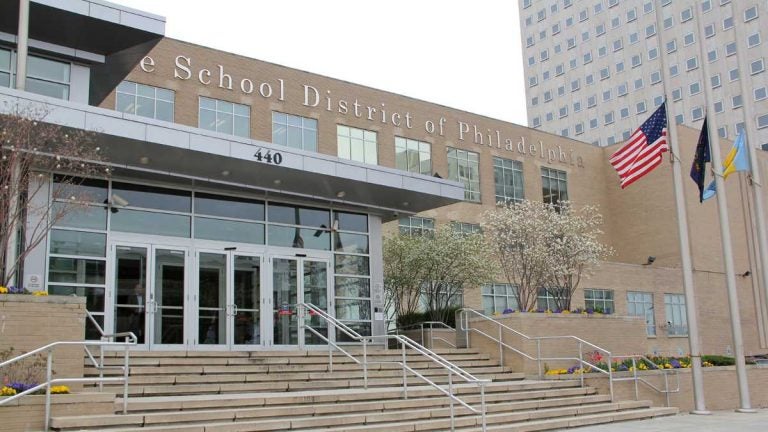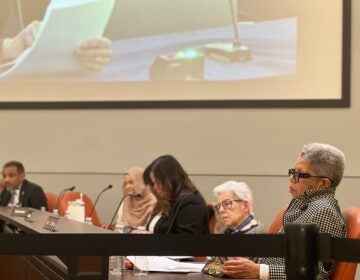Double standard in measuring performance of Philly public schools
We should identify and support good schools; and we should identify and fix — or close — bad schools.

File photo: Philadelphia School District headquarters at Broad and Spring Garden streets (Emma Lee/WHYY, file)
Fair is fair.
We support the School District of Philadelphia’s commitment to maintaining standards of academic quality. All of us as parents and citizens benefit from high-quality schools, and we should demand nothing less from those whose job is to educate our children.
When it comes to enforcing these standards, all schools should be treated equally: We should identify and support good schools; and we should identify and fix — or close — bad schools.
And there’s the problem. In promulgating the new Philadelphia Charter School Performance Framework to measure school quality, the school district employs a double standard. It holds charter schools to the standards of the framework, yet it completely ignores these same standards when assessing the performance of district-operated public schools.
The framework and its implementation are so bizarre that it leads to a single conclusion: The district is rigging the game to limit the expansion of charter schools, while continuing to tolerate the failing conditions in far too many of its own neighborhood public schools.
Here’s how it works: The framework assigns a score to charter schools from 1 to 100 percent. A school earning a score of under 45 percent does not meet the standard; a score between 45 and 70 percent approaches the standard; and a score above 75 percent meets the standard.
Fine so far, and we agree that the district should hold charters to high standards of academic performance, fiscal management, and transparency in operations and governance. So, if a school is found to not meet the set standard, we agree that such conditions should not be tolerated.
But let’s hold every school to the same standard. Recently, Excellent Schools PA published the results of research applying the framework to all schools in Philadelphia, not just charters. Unfortunately, the results put the lie to any claim by the district that the framework represents its commitment to high-quality schools.
Consider these findings from the research:
- A full 43 percent of all public schools (district and charter) in Philadelphia fall below a framework score of 45 percent and would not meet academic standards.
- Of this number, 22 percent of charter schools and 53 percent of district schools earned a framework score below 45 percent.
- In contrast, 19 percent of all district-run schools and 34 percent of charters earned a framework score above 75 percent, which would earn them the designation of meeting the standard.
The research makes two points pretty clearly:
- Much work remains for all Philadelphia public schools — charter and district — to provide the high-quality education our children need to secure a productive future.
- The district’s policy of applying the framework only to charters completely ignores its own abysmal record of performance in many district-run public schools.
The district needs to end the hypocrisy of applying different standards to measure the performance of its schools. There should be only one standard, and all schools should be
required to meet it.
Fair is fair.
Laurada Byers is the co-founder of the Russell Byers Charter School and board president of Philadelphia Charters for Excellence.
WHYY is your source for fact-based, in-depth journalism and information. As a nonprofit organization, we rely on financial support from readers like you. Please give today.




